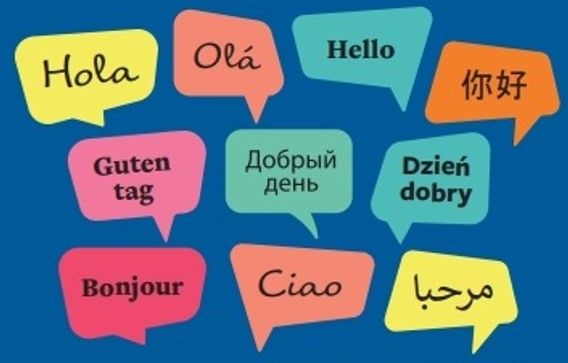Leeds City of Languages festival brings University’s civic mission to life

This autumn a vibrant new festival organised by academics at the Faculty of Arts, Humanities and Cultures will celebrate the languages, cultures and communities that make Leeds so diverse.
In line with the University of Leeds’ mission to engage with local communities, the west Yorkshire region and the world, Leeds City of Languages (10 – 23 November 2025) will bring together a diverse range of audiences from across Leeds, where over 170 languages are spoken. The most widely spoken non-UK language is Polish, used by over 8,000 residents, followed closely by Arabic. Other significant communities include speakers of Romanian, Urdu, Panjabi and Portuguese.
Originally launched as Leeds Language Week in 2023, the initiative has grown into a wider celebration with free activities taking place in schools, community spaces and across the University of Leeds’ campus. These include language taster workshops in schools, webinars for teachers, talks, community events, collaborations with local libraries, and a wide range of cultural experiences, from multilingual poetry competitions to literary treasure hunts and film screenings.

The Leeds City of Languages programme is led by Bettina Hermoso-Gómez (Lecturer in Spanish at the School of Languages, Cultures and Societies and Director of Routes into Languages Yorkshire and Humberside) and Sofia Martinho (Associate Professor of Portuguese at the School of Languages, Cultures and Societies and Director of the Camões Centre for Portuguese Language), with the support of Professor Emma Cayley, Head of the School of Languages, Cultures and Societies, and the Faculty’s Arts and Humanities Outreach Team.
Researchers from across the Faculty of Arts, Humanities and Cultures are hosting a variety of events:
- Professor Fozia Bora (School of Languages, Cultures, and Societies) will give a public talk titled ‘Racial Hierarchy in Edwardian Yorkshire: Bradford's Somali Village on 1904’. Part of the city of Bradford's Great Exhibition of 1904, showcasing the city's industrial and technological innovation, a group of 57 Somalis displayed their "culture" to the general public through building and inhabiting a "Somali Village" in Lister Park for six months. This talk explores a disturbing yet surprising form of cultural encounter, through a local and global history that has been forgotten yet has much to teach us today
- Professor Cécile De Cat (School of Languages, Cultures, and Societies) will host a webinar on ‘Understanding the Complex Reality Behind the EAL Label’. Many children are exposed to a language other than English in their homes, and their level of competence in that language varies enormously. These complex realities matter, and teachers need to understand them in order to adjust their expectations of the pupils in their care
- Emeritus Professor Stephen Coleman (School of Media and Communication), who was a member of the Oracy Commission, will be facilitating an online workshop to explore creative ways of integrating oracy into classroom teaching and beyond. The workshop will consider the specific skills and techniques involved in speaking and listening well; how such competencies can be assessed; how to build up confidence in more nervous communicators; and how teachers can develop their own confident self-expression
- Professor Cat Davies (School of Languages, Cultures, and Societies) will lead a webinar on ‘Maximising the Benefit of Early Years Education for Children’s Language Development’. The session will cover the progress of the national expansion of childcare entitlements and discuss recommendations for the rollout to ensure that families can make maximum benefit of quality early years education
- The Faculty’s joint Pro-Dean for Student Education, Professor Sascha Stollhans (School of Languages, Cultures, and Societies), will discuss attitudes to languages and the truth behind them. Does German really sound aggressive? Why do some people find the sound of French romantic and sexy? And how about the friendly-sounding Geordies?
Bettina Hermoso-Gómez and Sofia Martinho said:
“We’re thrilled to see Leeds City of Languages grow from a week of events into a vibrant regional festival celebrating the diversity of languages and cultures across Yorkshire. This initiative isn’t just about encouraging language learning – it’s about bringing people together, creating meaningful connections, and sharing the richness of the communities that make our region so unique.
“Seeing audiences of all ages engage with new languages, explore different cultures, and connect with one another is incredibly rewarding, and it reminds us of the powerful role that languages and cultures play in uniting communities. This initiative demonstrates the University of Leeds’ commitment to connecting research with communities, using language and culture as a bridge to foster meaningful engagement across the region.”
Full details of the programme and how to get involved can be found on the Leeds City of Languages website, where activities are now open for booking.





